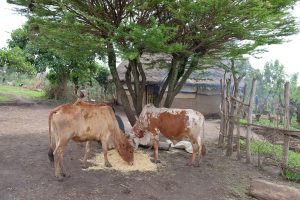The African Association of Agricultural Economists conducted its 6th African Conference of Agricultural Economists in Abuja, Nigeria from September 23-26, 2019. The theme of the conference was Rising to meet evolving challenges: Africa's agricultural development beyond 2020 Vision. IFPRI organized a session on "Innovating for efficient and inclusive value chains in Africa: The case of dairy" where new evidence on the ongoing processes of rapidly transforming dairy value chains in Eastern Africa was presented. Dairy is interesting for several reasons. First, the sector is characterized by frequent (daily) transactions between value chain actors, which allows for relationships that may be different from relationships that develop in other commodity value chains, where sales often only happen once or twice a year. Second, the perishable nature of milk also means fast processing, such as chilling in coolers, pasteurization or UHT treatment is needed, and quality preservation and sanitation are important throughout the chain. Third, being a nutritious food with high income elasticity, rapid urbanization in developing countries is an important pull factor, and producers respond by intensification investments such as higher yielding cross-bred cows. In sum, dairy value chains are transforming with technical and institutional innovations endogenously developing to adapt to challenges and to take advantage of a changing environment.
Bart Minten of ESSP presented the work on Transforming Agri-food Systems in Ethiopia: Evidence from the Dairy Sector. The paper examines transformation in Ethiopia's economy, particularly the dairy sector development focusing on understanding the transformation pattern in the sector supplying in Addis Ababa. After collecting and looking at data from 97 farms in Addis Ababa, 256 farms in suburban areas and 602 farms in rural areas (North and West Shewa), the research concluded that there are large changes in the dairy sector in Ethiopia with increase in dairy expenditure and increase in dairy processing companies. Even though there are issues of inclusiveness of small and remote farms, the result shows improved access to services, higher adoption of modern practices, higher yields, upscaling, and a sizable urban farm sector. Click here for the presentation.
